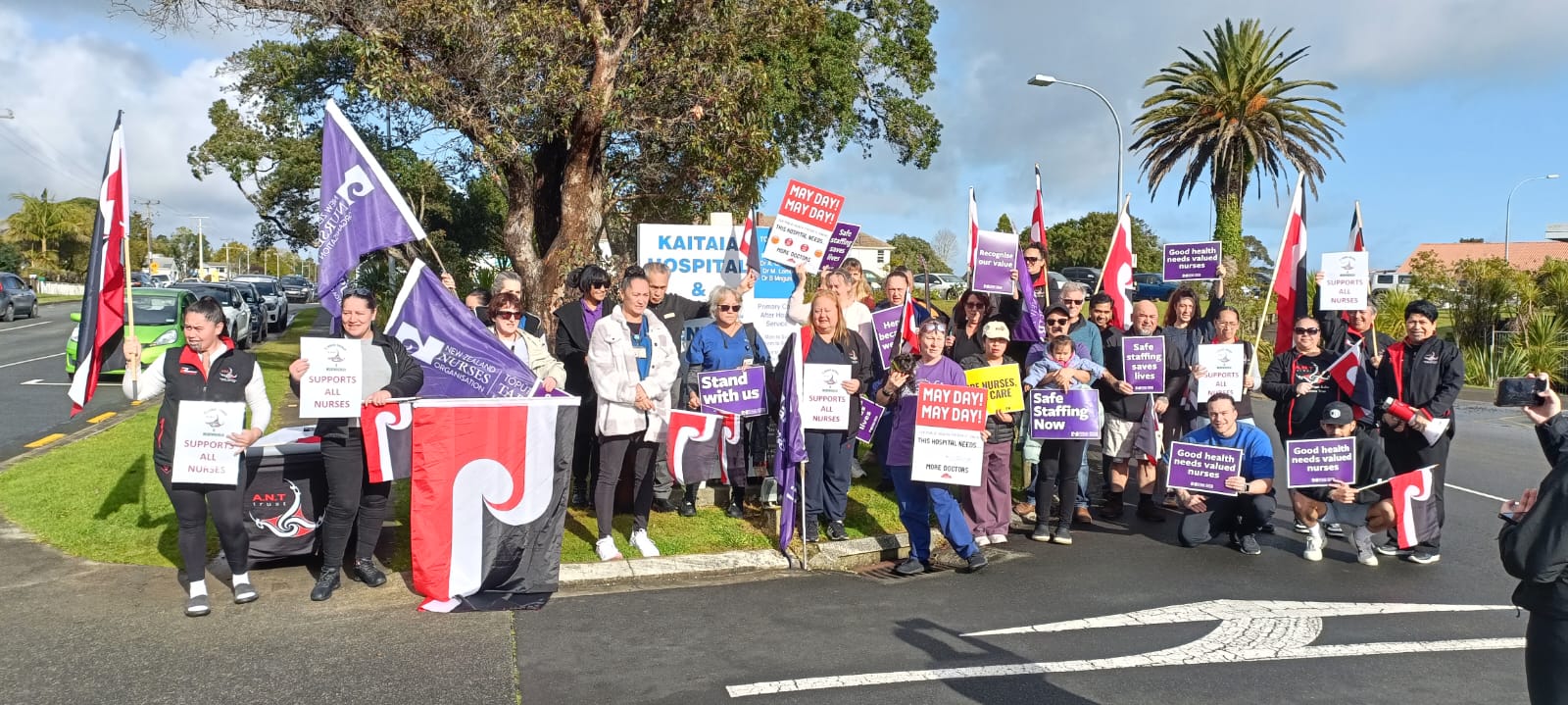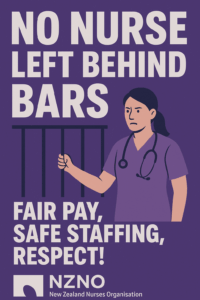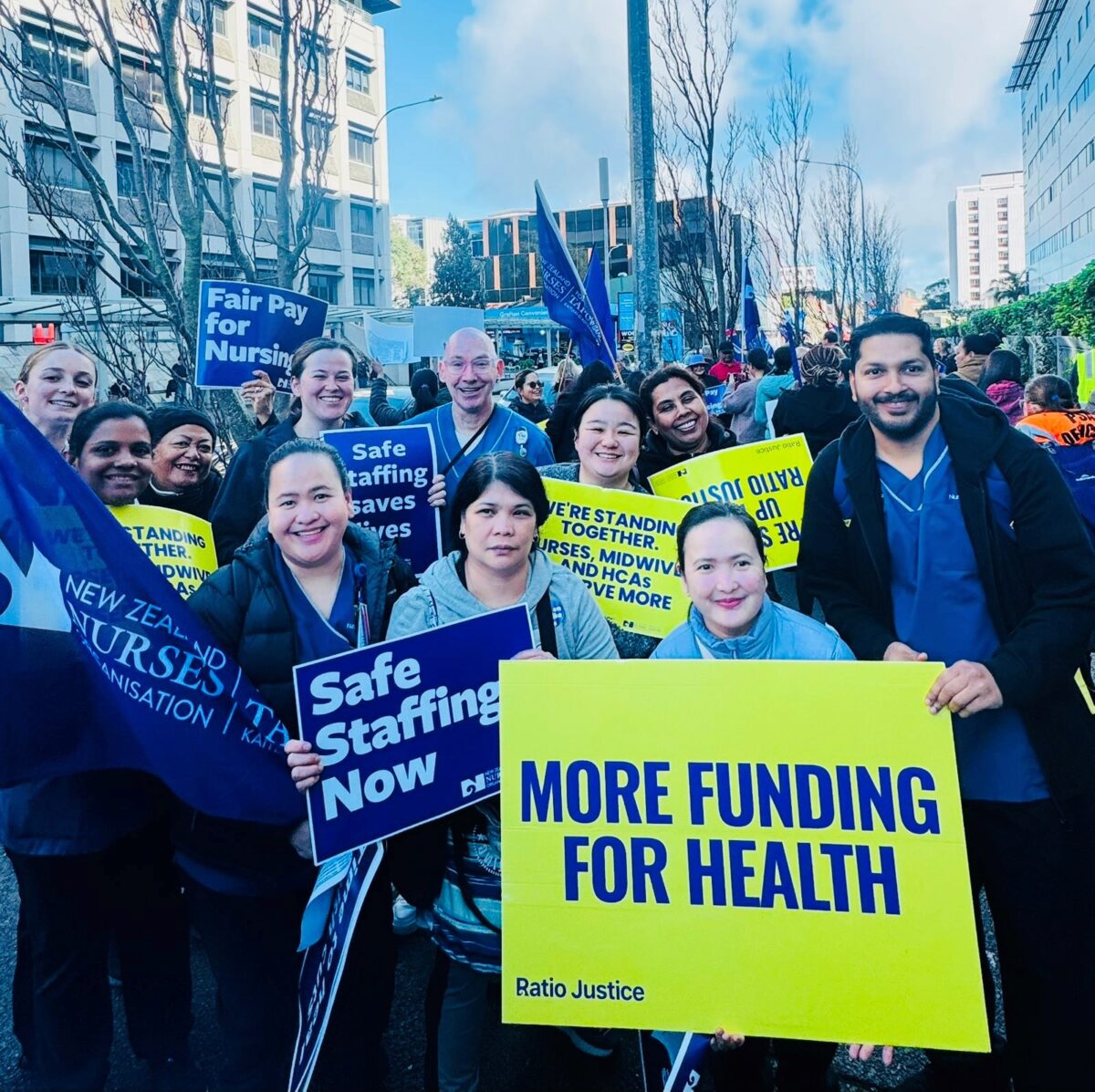Clinical nurse specialist in palliative care, Amanda Jennings is going to deliver the NZNO speech at the Timaru rally on Thursday and she’s a little nervous.
“It’s such a meaningful one, with all of these other unions. It really feels special.”
Jennings spoke to Kaitiaki ahead of October 23 strikes covering 100,000-plus workers including NZNO Te Whatu Ora and Corrections members — something she was proud to be a part of.
Her work takes her to people’s homes, not hospitals, but she’s seen the broader impact of short staffing and underfunding.

A fundamental part of caring for end-of-life people was finding the time to sit and hold their hand and “hear the story of a dying person”.
Overworked nurses in hospitals and aged residential care often simply couldn’t do this, Jennings said. “That’s a painful thing to observe really, and to be part of.”
Jennings said she was proud to stand shoulder to shoulder with people from professions that were considered some of society’s most valuable.
“It’s about valuing our heath care and valuing our education, and what could be more important than that?”
Small town, big impact
Associate clinical nurse manager Michelle Roche manages the Kaitaia Hospital outpatients department, triage team and after-hours community service.

Strikes from multiple unions would have a big impact in a small town like Kaitaia and its hospital, she said. That meant members had to make hard decisions because they knew the effects of actions on their hospital, their community and their families.
Roche — nursing since 2010 — had been through a few strikes, but the scale of Thursday’s day of actions was probably the biggest she’d ever seen.
“It was almost an honour, but it’s an unfortunate honour that we have to come together like this . . . for our communities.”
Isolated, but not alone
The problem with prisons is they’re often not in urban centres, said Corrections nurse Michael Pye ahead of Thursday’s historic strike.
Earlier this month NZNO Corrections members voted to strike from 6am to 10pm — frustrated with Corrections’ failure in bargaining to address safety concerns.

Only a farmer and a few soldiers from the nearby military camp would see any picket line at Linton, in the Lower North Island, he laughed. So Pye and a group of colleagues would be heading into Palmerston North to join rallying Te Whatu Ora members.
He had been involved in strikes for a long time, he said, but the historic day of actions “feels like a potential turning point”.
These actions were a symptom of what was happening to many New Zealanders, he said — “the angst and uncertainty that many of those people are feeling everywhere”.
Members’ work in prisons squeezed multiple types of practice into a single, heavily-structured environment.
“It’s like working in a GP clinic, it’s like working in an urgent-care clinic, it’s like working in an aged-care facility, it’s like working in a mental health care facility, at all levels of mental health care . . . and all of the work that needs to be done — there’s just not enough of us doing it.”
Strikes all go — but weather forces some rally cancellations

More than 100,000 workers from essential services in collective bargaining are expected to take part in strikes calling on the Coalition Government to properly fund their mahi.
Previously there were 41 rallies planned around the country, including a march to Parliament in Wellington for the historic day of actions.
Now rallies planned for areas affected by red weather warnings have been cancelled. This covers Wellington and Wairarapa, Canterbury and — due to orange weather warnings — parts of Otago.
Some other rallies have been moved indoors — read here for the full updated list of events.
Last Friday it was firefighters’ turn to strike — about 2000 going out for an hour, with NZNO members supporting them.
Te Whatu Ora members’ strike on Thursday, running from 11am to 3pm, comes after they downed tools in July and September.
That came as job-matches within Te Whatu Ora dried up for nursing graduates in the mid-year cohort, as reported by Kaitiaki.
- This story has been updated since publication to include new information on rally cancellations due to weather warnings.




